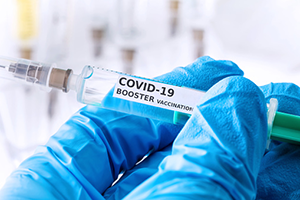In a single-institution Israeli study reported in a research letter in JAMA Oncology, Rottenberg et al found that a booster dose of the SARS–CoV-2 BNT162b2 mRNA resulted in increased spike protein antibody titers in patients with solid tumors undergoing active treatment.
Study Details
The study included 37 patients at Hadassah Medical Center in Jerusalem who underwent serologic testing between August 15 and September 5, 2021, after receiving a vaccine booster dose. Active treatment was defined as chemotherapy, biologics, checkpoint inhibitors, or combinations of these therapies.
Key Findings
The median interval between booster dose and second dose was 214 days (range = 172–229 days) and the median interval between the second dose and post–second dose antibody measurement was 86 days (range = 30–203 days). Patients had a median age of 67 years (range = 43–88 years). A total of 11 patients (30%) had nonmetastatic cancer, and 19 (51%) were receiving chemotherapy.
Blood samples for testing of antibody response were collected at a median of 13 days (range = 1–29 days) after receipt of the booster dose. All patients but one had a positive serologic test result (> 19 AU/mL); this patient was in their 40s, had no chronic illness, and was receiving adjuvant dose-dense doxorubicin and cyclophosphamide followed by paclitaxel with trastuzumab and pertuzumab.

Photo credit: Getty
Antibody response to the booster dose was robust in nearly all patients, including patients who had exhibited a moderate or minimal response following the second dose. Significant increases in antibody titer were observed both among patients receiving chemotherapy (P < .001) and those receiving other treatments (P < .001).
In multivariate analysis, antibody levels post-second dose (0.497 units per 1 unit in log10 scale, P < .001) and older age (0.01 units in log10 scale per year, P = .03) were significantly associated with higher antibody levels after the booster dose. Sex (P = .58), chemotherapy vs no chemotherapy (P =.95), and interval between booster dose and testing (P = .89) were not significantly associated with post-booster antibody levels.
The investigators stated, “Although limited by a small sample size, data in this cohort study suggest a generally positive and immediate antibody response to booster administration of the BNT162b2 vaccine among patients with cancer receiving active systemic therapy…. [T]he present results support booster dosing of patients with cancer, including individuals being treated with chemotherapy.”
Albert Grinshpun, MD, MSc, of the Department of Medical Oncology, Dana-Farber Cancer Institute, is the corresponding author for the JAMA Oncology article.
Disclosure: For full disclosures of the study authors, visit jamanetwork.com.

